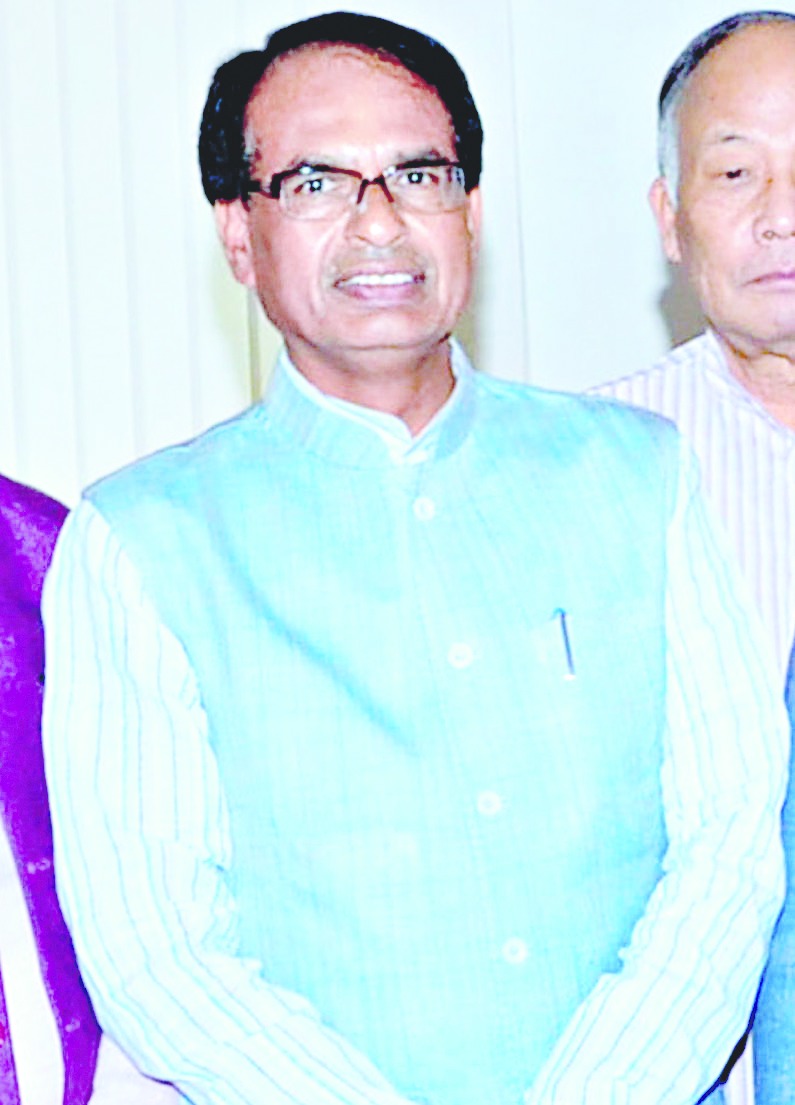Bhopal, Nov. 28: The Shivraj Singh Chouhan government plans to include lessons from all the major religions in its school textbooks to end the two-year-old controversy over its thwarted bid to teach the Bhagvad Gita in the state's classrooms.

School education minister Deepak Joshi today confirmed the proposal to incorporate texts from holy books like the Bible, Quran and the Guru Granth Sahib into the school curriculum, along with passages from the Gita.
He said a 16-member school curriculum panel would meet on Tuesday to take the final call.
"We feel that education is not complete without the knowledge of one's own and other religions," Joshi told The Telegraph.
Chouhan's government had in 2013 tried to introduce lessons from the Gita in schools, including government-run Urdu-medium schools, but had to backtrack under resistance from Muslim and Christian groups and the Congress.
Under the old proposal, a chapter on the Gita was to be included in the General Hindi textbooks for Classes III to VIII and in the Special English and Urdu textbooks for Classes I and II.
Since most private Muslim minority schools use Urdu textbooks published by the government, as do the government-aided madarsas, the decision was to impact them too.
The latest decision is consistent with the way Chouhan, who completes 10 years as chief minister tomorrow, has tended to accommodate minority concerns while often pushing Hindu majoritarian causes.
His administration has introduced the Surya Namaskar, Bhojan Mantra and the singing of Vande Mataram at schools and government offices but, in the face of protests, Chouhan has exempted unwilling pupils and employees.
Chouhan's government enacted a law in 2013 that makes prior permission from district authorities mandatory for conversions and inter-religion marriages, and stipulates a three-year jail term for forcible conversions. But the Muslim and Christian communities, which opposed the law, have so far not complained about its misuse.
A four-year-old cow slaughter law brought in by Chouhan's government that carries seven years' imprisonment was dubbed "draconian" but, again, has not yet spawned any complaint of misuse.
Two years ago, Chouhan allotted six acres of prime land in Bhopal at a token cost of Re 1 to the Maulana Azad National Urdu University, a gesture many Muslim clerics and community leaders welcomed.
Ironically, the move brought the charge of "minority appeasement" against Chouhan from an unexpected quarter - Ajay Singh, Congress politician and then leader of the Opposition in the state (and the son of the late Arjun Singh).
Most of Chouhan's social welfare initiatives have covered Muslims and other minorities well enough.
For instance, a state-sponsored pilgrimage scheme for over-60 citizens covers the Ajmer Dargah, the Velankanni Church (Nagapattinam, Tamil Nadu), the Golden Temple, Bodh Gaya and Parasnath (Jharkhand) along with Rameswaram, Puri, Kedarnath-Badrinath, Haridwar and some other holy sites. Thousands of Muslims, Christians, Jains, Sikhs and Buddhists have availed themselves of the scheme.
Another popular scheme, Kanyadaan, which provides cash grants to newlyweds, has benefited more than 8 lakh couples of whom, government figures say, about one lakh are Muslim.











